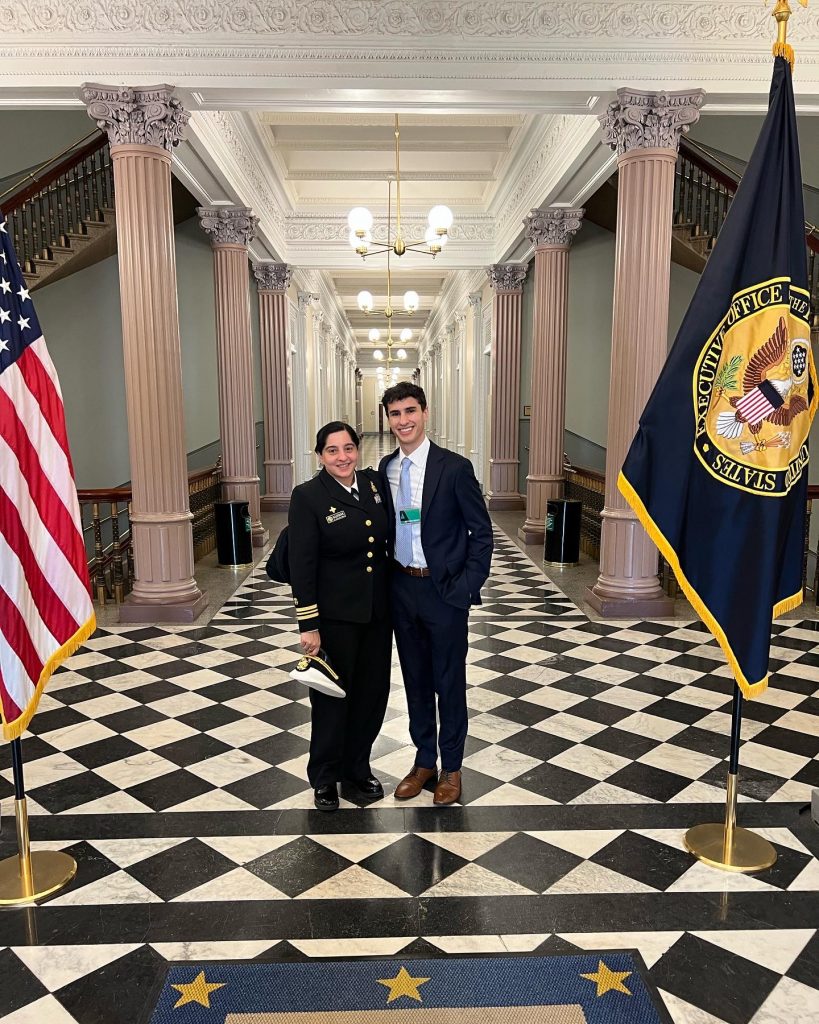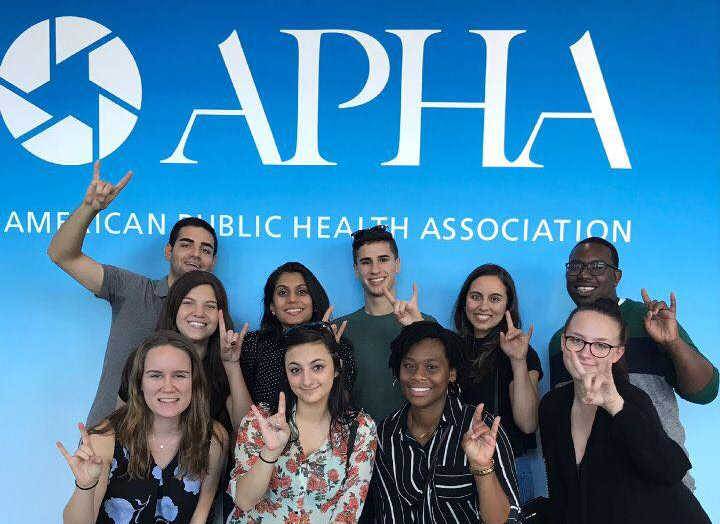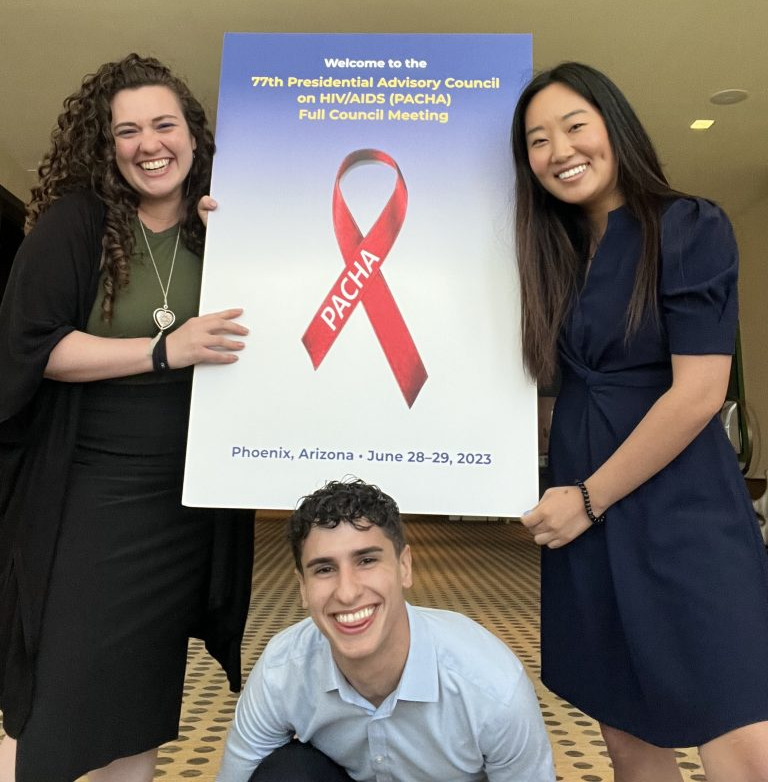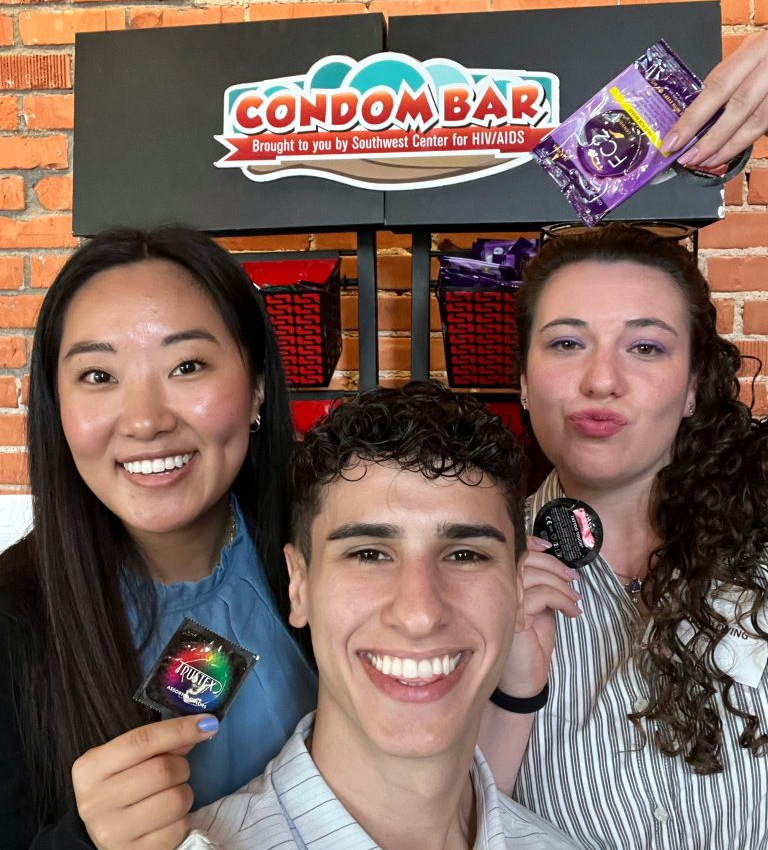How the intersection of passion, pleasure and sexual health ignited one COPH alum’s journey
Born and raised in Upstate New York, Stephen Tellone moved to Spring Hill, Fla. during his sophomore year of high school. However, his public health journey began one hour further south at the University of South Florida St. Petersburg (USFSP). It was there that he discovered the College of Public Health (COPH).

Initially a biology major at the St. Pete campus, Tellone said his interests quickly evolved as he delved deeper into the social contexts that shape human behavior.
He said he remembers the turning point during a seminar on the Psychology of Human Sexuality.
“I felt anger and resentment, but also curiosity,” he recalls. “For the first time, I was able to conceptualize the stigma and discrimination toward being gay that I’ve experienced and how they profoundly impact population health and well-being.”

In the spring of 2018, Tellone transferred to the Tampa campus. During his time at the COPH, Tellone served as the director of marketing and public relations for the Undergraduate Public Health Student Association. The group had the opportunity to attend the American Public Health Association Conference in San Diego in November 2018.

Tellone said some of his COPH highlights included studying abroad in Panama and London.
“Studying abroad taught me a lot about different health systems, and broadly how social and structural factors impact health and well-being,” he said. “I was able to compare and contrast health systems with one another.”
Tellone also pointed to various faculty members as his inspiration.
“I learned a lot from Drs. Alison Oberne and Rita DeBate about leadership and workforce development,” he said. “They taught me how to adopt a global perspective and helped nurture my critical thinking, problem-solving and effective communication skills.”

Tellone said, “Before my psychology of human sexuality course at USFSP, I only thought about health from a biomedical lens. That class taught me to think about health from a social science and social justice framework.”
In 2019, Tellone graduated with a bachelor of science in public health and a minor in psychology. He said his dedication to public health only grew stronger as he embarked on his Master of Public Health journey at Columbia University Mailman School of Public Health, specializing in sociomedical sciences with a certificate in sexuality, sexual and reproductive health.
“I chose to get my MPH as I wanted to further my theoretical and methodological training specifically in the social sciences focusing on sexual and reproductive health and human rights,” Tellone said.

Reflecting on his time at Columbia, Tellone said, “I worked on a study that investigated the acceptability, feasibility and ethical challenges of HIV/STI prevention research with men and transgender people who attend collective sex environments.” He also worked to conduct a literature synthesis supporting the 2019 World Association of Sexual Health’s Declaration on Sexual Pleasure.
“This study taught me a lot about the current perspective on sexual and reproductive health,” Tellone said. “It confronted me with the unmet need for a more productive and nuanced analysis of sexual health and pleasure. It helped me understand that we need to incorporate a value for pleasure into health care services, as pleasure is a fundamental reason why people engage in sexual activity. Acknowledging this can support individuals in creating safer, more pleasurable experiences while promoting sexual and reproductive health.”
Currently, Tellone serves as an ORISE Fellow at the U.S. Department of Health and Human Services, working in the Office of Infectious Disease and HIV/AIDS Policy. His current role is in analyzing and evaluating programs and policies related to HIV/STIs in the United States.
“My work involves coordinating a national strategic response to address increasing outbreaks and collaborating with federal and non-federal agencies with equity and social determinants of health at the core of their mission,” Tellone said.
He said his current role, where he collaborates with various stakeholders to combat the escalating epidemic of HIV/STIs in the United States, has been the highlight of his journey thus far.
“Equity and social determinants of health are at the center of our mission, and something that we ground in all of the work that we do,” Tellone emphasized.
Fast Five:
- What
did you dream of becoming when you were young?
- It was between being a medical doctor or a physical therapist.
- Where
would we find you on the weekend?
- Enjoying one of my favorite fitness classes in D.C. or at a bookstore or cafe reading. In the spring or fall, you can also find me hiking or enjoying a picnic.
- What
is the last book you read?
- “Red, White, and Royal Blue,” by Casey McQuiston, right before the movie was released.
- What
superpower would you like to have?
- I really wish I could read people’s minds (my dog’s mind, too). Not just on a basic level to know what they are thinking, but to understand the psychology behind why they are thinking that way.
- What’s
your all-time favorite movie?
- “The Devil Wears Prada” or “Call Me by Your Name.” They are such feel-good, comfort movies.
Story by: Liz Bannon, USF College of Public Health
